Article on shipboard automated meteorological and oceanographic system data archive published in RMetS journal
(Source: Royal Meteorological Society Geoscience Data Journal; first published November 19, 2018
)
Since 2005, the Shipboard Automated Meteorological and Oceanographic System (SAMOS) initiative has been collecting, quality-evaluating, distributing, and archiving underway navigational, meteorological, and oceanographic observations from research vessels. Herein we describe the procedures for acquiring ship and instrumental metadata and the one-minute interval observations from 44 research vessels that have contributed to the SAMOS initiative from 2005 to 2017. The overall data processing workflow and quality control procedures are documented along with data file formats and version control procedures. The SAMOS data are disseminated to the user community via web, FTP, and Thematic Real-time Environmental Distributed Data Services from both the Marine Data Center at the Florida State University and the National Centers for Environmental Information, which serves as the long-term archive for the SAMOS initiative. They have been used to address topics ranging from air-sea interaction studies, the calibration, evaluation, and development of satellite observational products, the evaluation of numerical atmospheric and ocean models, and the development of new tools and techniques for geospatial data analysis in the informatics community. Maps provide users the geospatial coverage within the SAMOS dataset, with a focus on the Essential Climate/Ocean Variables, and recommendations are made regarding which versions of the dataset should be accessed by different user communities.
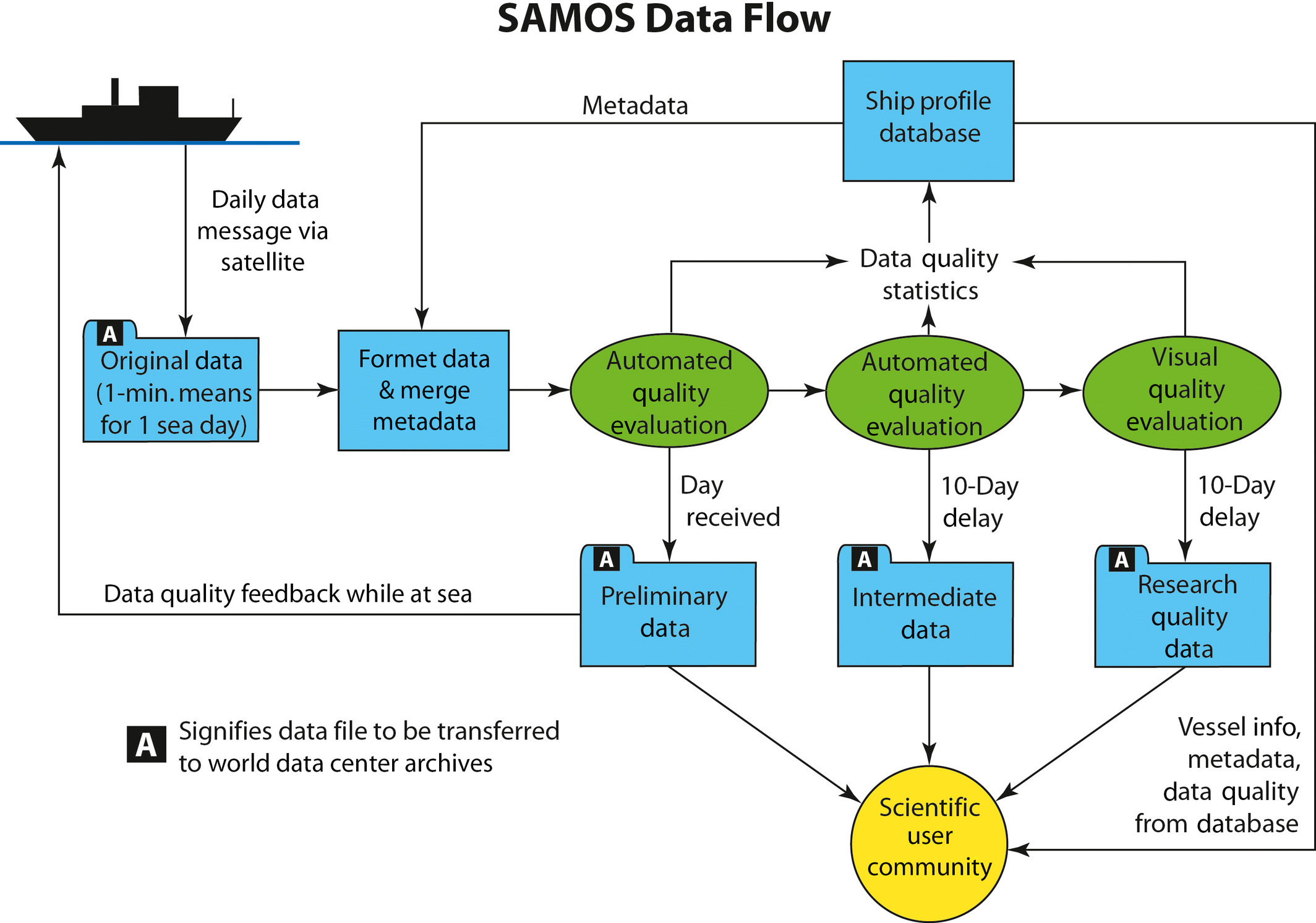
|
New collaboration with NC State will review and test the performance of leading Gulf of Mexico prediction systems
FSU-COAPS will begin a new collaboration with North Carolina State University and other institutions to respond to the National Academies of Sciences, Engineering, Medicine, Gulf Research Program Request for Proposals: "Understanding Gulf Ocean Systems Grants 1, Topic: Studies and Observations to Inform Loop Current Campaign." The purpose of the work, led by
Steve Morey (COAPS/FAMU) and
Eric Chassignet (COAPS), will be to review leading federal and academic Gulf of Mexico prediction systems to test their performance and sensitivity in resolving both surface and subsurface circulation, with emphasis on the Loop Current system. This project will include a skill assessment among existing Gulf of Mexico prediction systems based on HYCOM, MITgcm, and ROMS community ocean models. FSU-COAPS will lead the effort to assess hindcasts and forecasts using HYCOM, collaborating with the Navy Research Laboratory (NRL).
|
Helping FSU students discover physics
 |
|
 |
Jocelyn Elya |
Jocelyn Elya, lead programmer in the
Marine Data Center, was an invited speaker for the October 30th "Discovering Physics" class at FSU. Elya spoke about her career experience as a
professional with a physics background working outside of academic physics and addressed how she combines physical science knowledge with software development skills working at COAPS with meteorologists and oceanographers.
New ESIP cluster to tackle marine data challenges
Jocelyn Elya has been selected to chair a newly-formed
Earth Science Information Partners (ESIP) Marine Data Cluster. The group will host an
introductory session at their 2019 winter meeting on January 15 to include brief presentations from chairs and founding members, followed by an open discussion on what problems the new cluster will tackle and what are the most important topics the group will focus on moving forward.
|
|
|
Student Activities and Achievements
|
| |
|
 |
An FSU IDEA grant allowed Dodamead to conduct research in Bangladesh--on the way there she stopped in Indonesia to climb an active volcano, Mt. Rinjani.
|
Florida State University senior
Sarah Dodamead is on track to earn a degree in physics and astrophysics, a major that has afforded her some valuable research opportunities. Under the guidance of Dr.
Mark Bourassa, professor of meteorology and associate director of the Center for Ocean-Atmospheric Prediction Studies, she has studied how oceans interact with the atmosphere. "I love to understand things at a fundamental level, so that's why it made sense to get a degree in astrophysics," Dodamead says. "Plus, I've never been one to shy away from a challenge."
Read more.
|
Look Who Moved their Tassels!
|
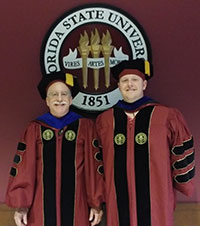 John Steffen
(meteorology) successfully defended his PhD dissertation entitled "Barrier Layer Development local to tropical cyclones" and graduated in December. Steffen John Steffen
(meteorology) successfully defended his PhD dissertation entitled "Barrier Layer Development local to tropical cyclones" and graduated in December. Steffen has
accepted a post-doc position at Woods Hole Oceanographic Institution, working on a project that will focus on the influence of coupled, air-sea interactions on the variability/ predictability of the Madden-Julian oscillation over the Maritime Continent.
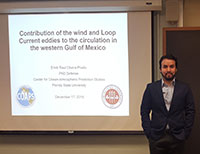 Erick Olvero-Prado (oceanography) successfully defended his PhD dissertation entitled "Contribution of the wind and Loop Current Eddies to the circulation in the western Gulf of Mexico" and graduated in December. Olvero-Prado has moved to Mexico City where he will be doing a postdoc at UNAM (National Autonomous University of Mexico. His work will involve assessing the
consequences/impacts of potential ocean oil spills in the Gulf of Mexico using numerical modeling (specifically HYCOM). Erick Olvero-Prado (oceanography) successfully defended his PhD dissertation entitled "Contribution of the wind and Loop Current Eddies to the circulation in the western Gulf of Mexico" and graduated in December. Olvero-Prado has moved to Mexico City where he will be doing a postdoc at UNAM (National Autonomous University of Mexico. His work will involve assessing the
consequences/impacts of potential ocean oil spills in the Gulf of Mexico using numerical modeling (specifically HYCOM).
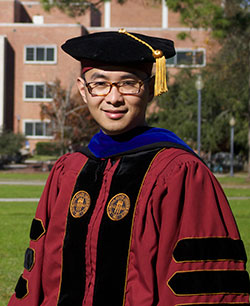 Xu Chen (physical oceanography) successfully defended his PhD dissertation entitled "Two-way feedback between air-sea turbulent fluxes and oceanic submesoscale processes" in November and graduated in December. Chen has accepted a postdoc position at COAPS where he will be involved in the Consortium for Simulation of Oil-Microbial Interactions in the Ocean (CSOMIO), a multi-institution effort to fill critical gaps in our ability to numerically model the transport and fate of oil in coastal waters Xu Chen (physical oceanography) successfully defended his PhD dissertation entitled "Two-way feedback between air-sea turbulent fluxes and oceanic submesoscale processes" in November and graduated in December. Chen has accepted a postdoc position at COAPS where he will be involved in the Consortium for Simulation of Oil-Microbial Interactions in the Ocean (CSOMIO), a multi-institution effort to fill critical gaps in our ability to numerically model the transport and fate of oil in coastal waters
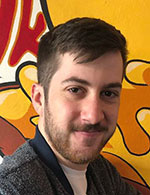 Spencer Lowery, Spencer Lowery, an undergraduate computer programmer in the
Marine Data Center
, graduated with a bachelor's degree in civil engineering from the FAMU-FSU College of Engineering. Lowery is moving to the Washington, DC area to take a position as a highway engineer for Federal Highway Administration.
|
|
Public Education and Outreach
|
Vasu Misra, along with state climatologist David Zierden and Danny Brouillette from the Florida Climate Center, were featured speakers at the Climate: Science and Society Symposium. The November 8th event was a gathering of interdisciplinary speakers sharing expertise on climate and its impact on various life factors. The speakers presented their research and creative works relating to climate science, climate policy, the economic impacts of climate, and more. It was sponsored by the
Florida State University Libraries
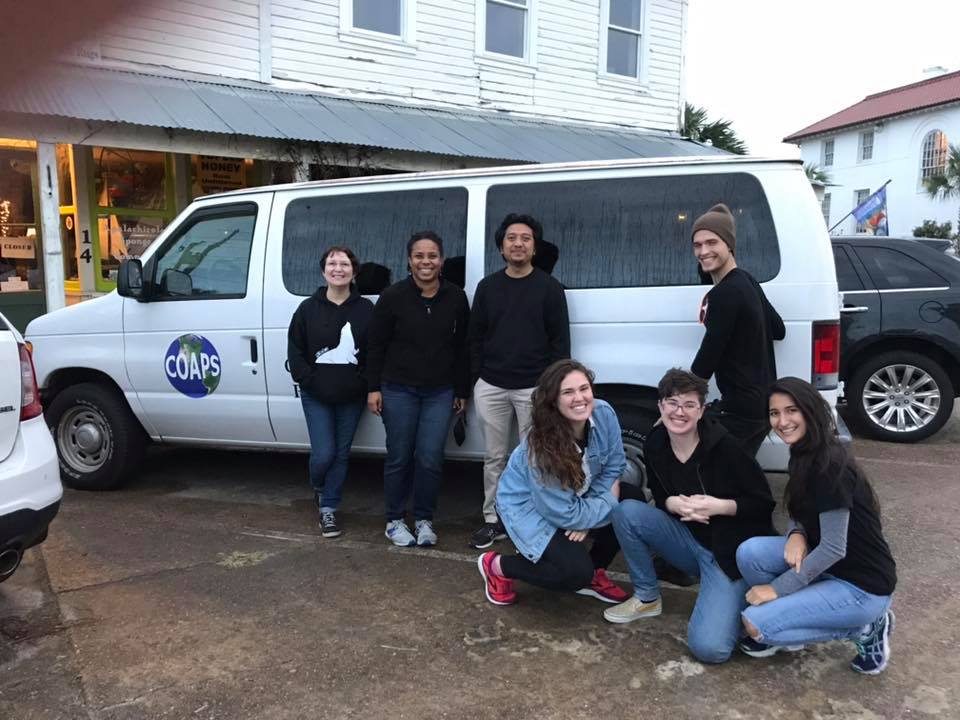 Students in the Fall 2018
"Climate Change and Community Resilience" course offered at FSU ventured to a Apalachicola, Florida to learn about how the community weathered hurricane Michael and their future resiliency strategies. Prof. Tisha Holmes, Department of Urban and Regional Planning, arranged for the group, which included
Tracy Ippolito from COAPS, to meet with local and state officials. They also toured the Apalachicola National Estuarine Research Reserve.
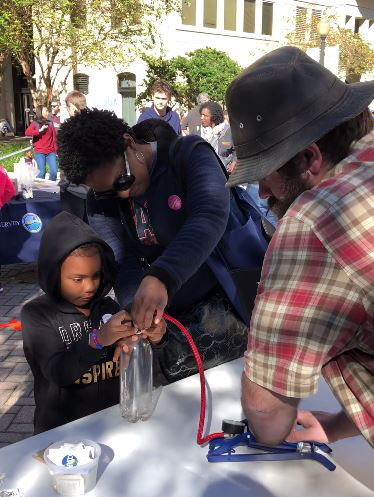 On November 3, COAPS participated in the seventh annual
Tallahassee Science Festival, which was held in Kleman Plaza in downtown Tallahassee. The festival brings together STEM (science, technology, engineering, and math) organizations from the Florida panhandle and beyond to present interactive activities aimed at all age groups.
Danny Brouillette (climatologist),
Jocelyn Elya (Marine Data Center lead programmer), and
Morgan Shaner (PhD student, oceanography) explained the breadth of COAPS activities and initiatives and led spectators in the 'cloud in a bottle' demonstration. This year's event drew an estimated 5,000 attendees.
|
|
Recent Publications
COAPS authors are in bold.
|
|
Kelly, T. B. (2018). Spatial and interannual variability in export efficiency and the biological pump in an eastern boundary current upwelling system with substantial lateral advection. Master's thesis, Florida State University, Tallahassee, FL.
Krishnamurti, T.N.,
Karmakar, N.,
Misra, V.,
Nag, B.,
Sahu, D.,
Dubey, S.,
Haddad, Z. (2018).
Association between upper level diffluence in the Tropical Easterly Jet and the formation of the strongest Atlantic hurricanes in recent years.
SPIE Asia-Pacific Remote Sensing. Paper presented at the Conference on Remote Sensing and Modeling of the Atmosphere, Oceans, and Interactions VII, Honolulu, HI. 25-26 Sept. 2018
Kumar, V., Jana, J.,
Bhardwaj, A., Deepa, R., Kumar Sahu, S., Pradhan, P.K., & Sirdas, S.A. (2019).
Greenhouse Gas Emission, Rainfall and Crop Production Over North-Western India.
The Open Environmental Research Journal, 12: 2590-2776.
Maksimova, E. V. (2018). A conceptual view on inertial internal waves in relation to the subinertial flow on the central west Florida shelf. Sci Rep, 8(1), 15952.
Misra, V., Bhardwaj, A., & Mishra, A. (2018). Characterizing the rainy season of Peninsular Florida. Clim Dyn, 51(5-6), 2157-2167.
Smith, S. R., Briggs, K., Bourassa, M. A., Elya, J., & Paver, C. R. (2018). Shipboard automated meteorological and oceanographic system data archive: 2005-2017. Geosci Data J, 5(2), 73-86.
Stukel, M. R., Décima, M., Landry, M. R., & Selph, K. E. (2018). Nitrogen and isotope flows through the Costa Rica Dome upwelling ecosystem: The crucial mesozooplankton role in export flux. Global Biogeochemical Cycles, 32(11), 1621-1717.
Xu, X., Chassignet, E. P., & Wang, F. (2018). On the variability of the Atlantic meridional overturning circulation transports in coupled CMIP5 simulations. Clim Dyn., 51(327), 1-21
|
Undergraduate Computer Programmer
COAPS has an immediate opening for a part-time undergraduate student to conduct scientific programming to support ongoing atmospheric and oceanic research. The successful candidate will be working within the COAPS Marine Data Center. Duties may include (1) directed scientific programming to process remotely-sensed and in situ observational data sets, (2) data analysis and graphics development to support team research results, (3) maintaining content in backend databases (MySQL), and (4) developing database-coupled applications to export, analyze, or plot a wide range of atmospheric and oceanic data products hosted by the MDC. The position will be filled for Spring semester 2019 (10-15 hrs/wk), with possible employment extension based upon performance. For more information, visit
https://www.coaps.fsu.edu/contact/employment#other
Undergraduate Web Programmer
COAPS has an immediate opening for part-time undergraduate students to develop and maintain web services to support dissemination of research data and to provide an accessible web front end for researchers and the general public. Duties include (1) designing and developing new web pages, (2) updating content in HTML, PHP, and Joomla CMS, (3) maintaining content in backend databases (primarily MySQL), and (4) developing database-to-web applications to display/serve the wide range of atmospheric and oceanic data and research products served by COAPS. These positions will provide the motivated undergraduate with an opportunity to develop and expand their web programming skills while supporting an operational research center. The position will be filled for Spring semester 2019 (10-15 hours/week), with possible employment extension based upon performance. For more information, visit
https://www.coaps.fsu.edu/contact/employment#other
|
|